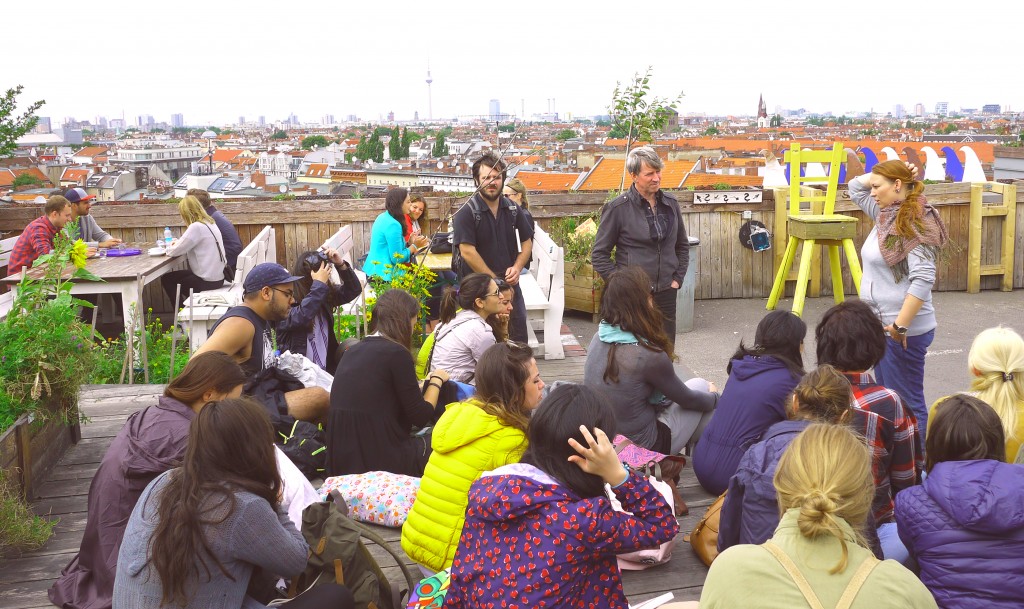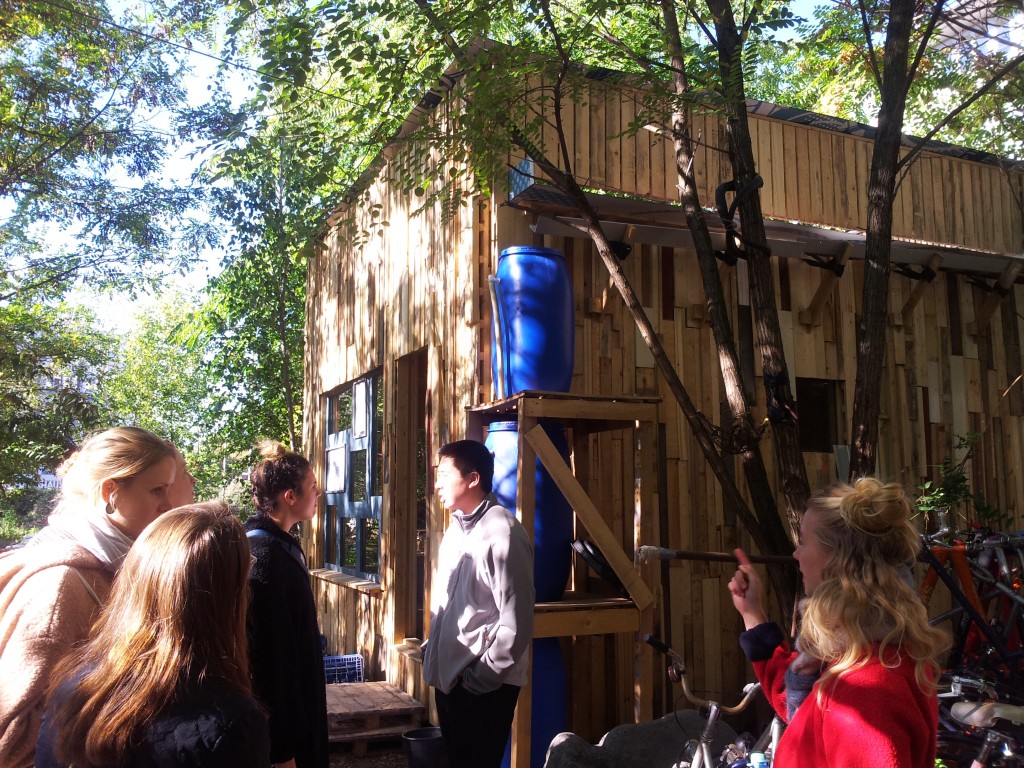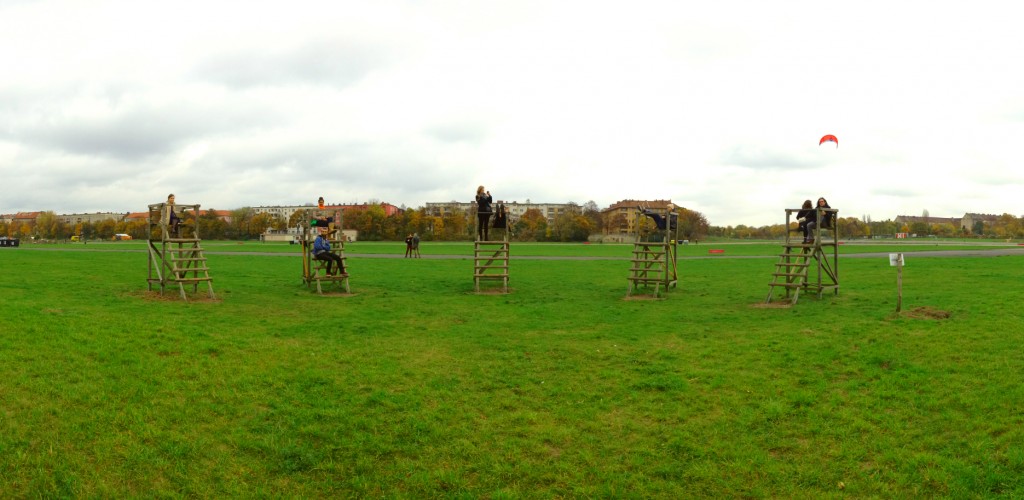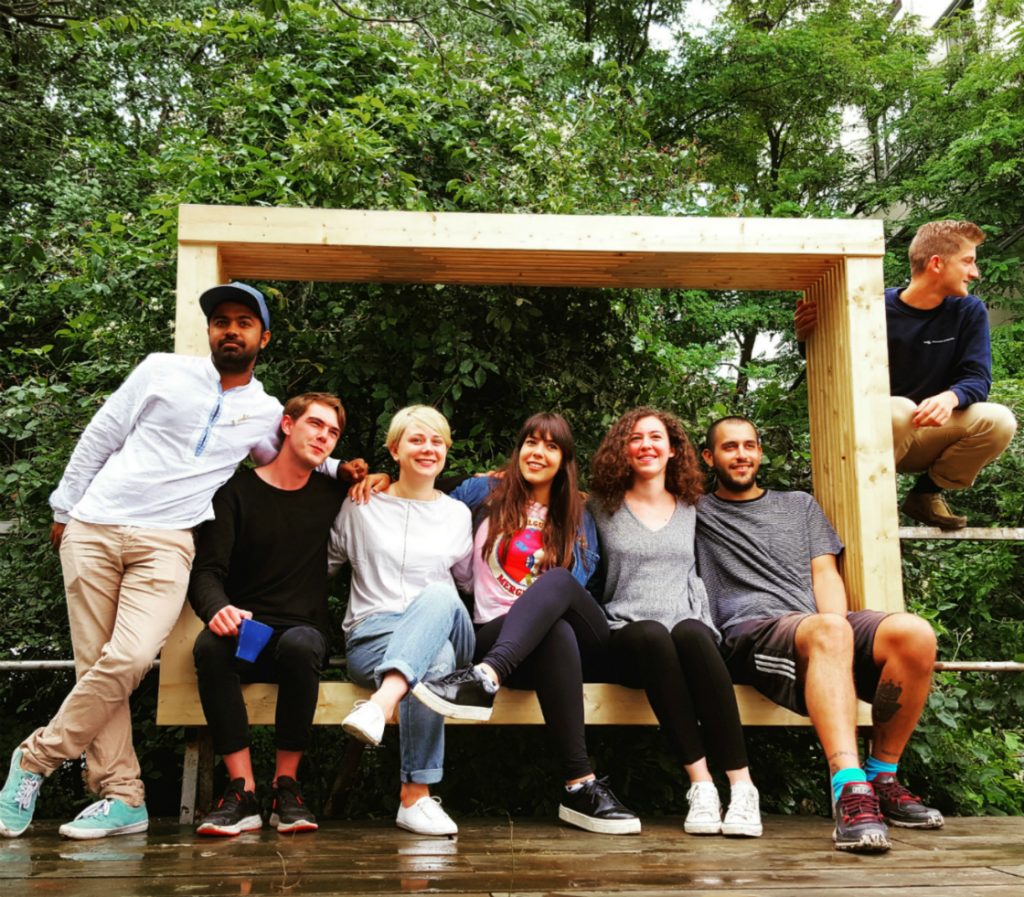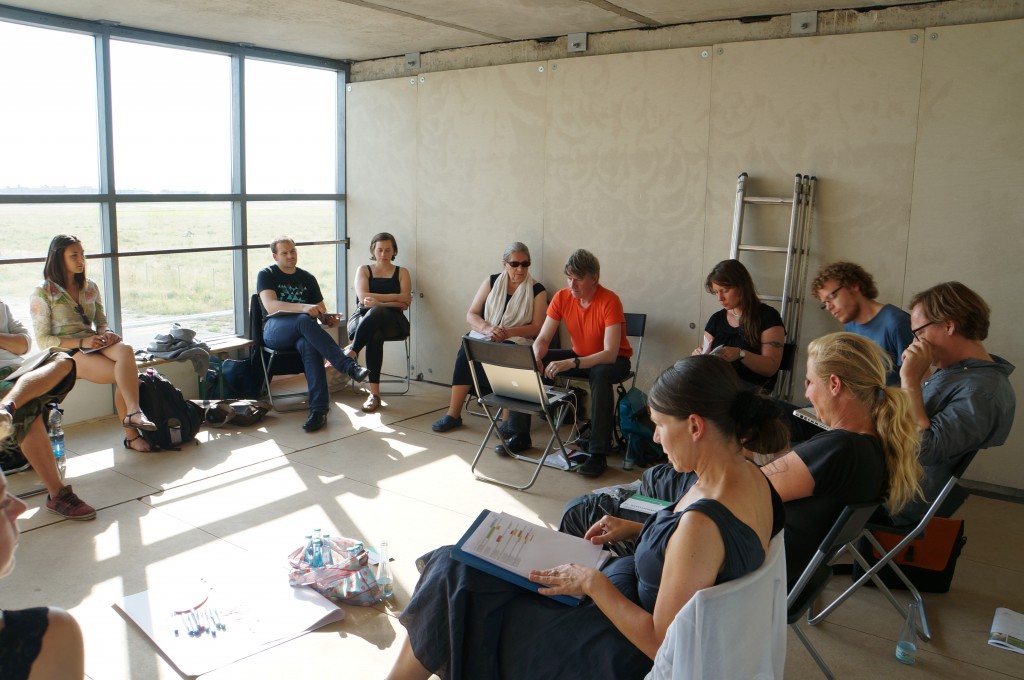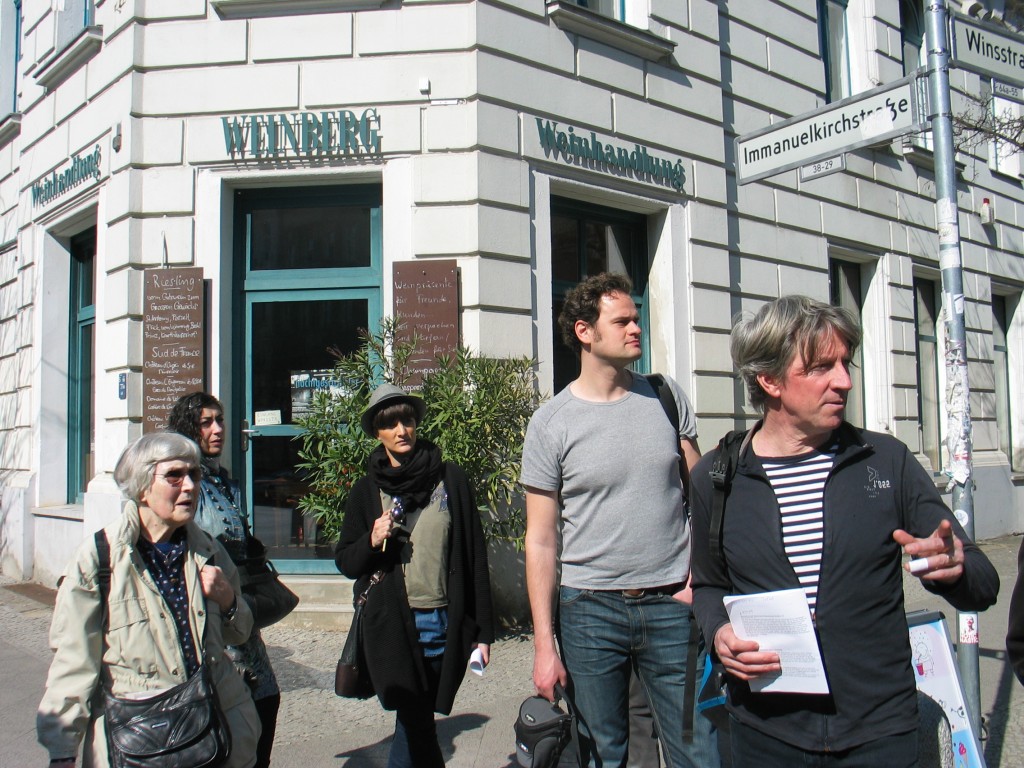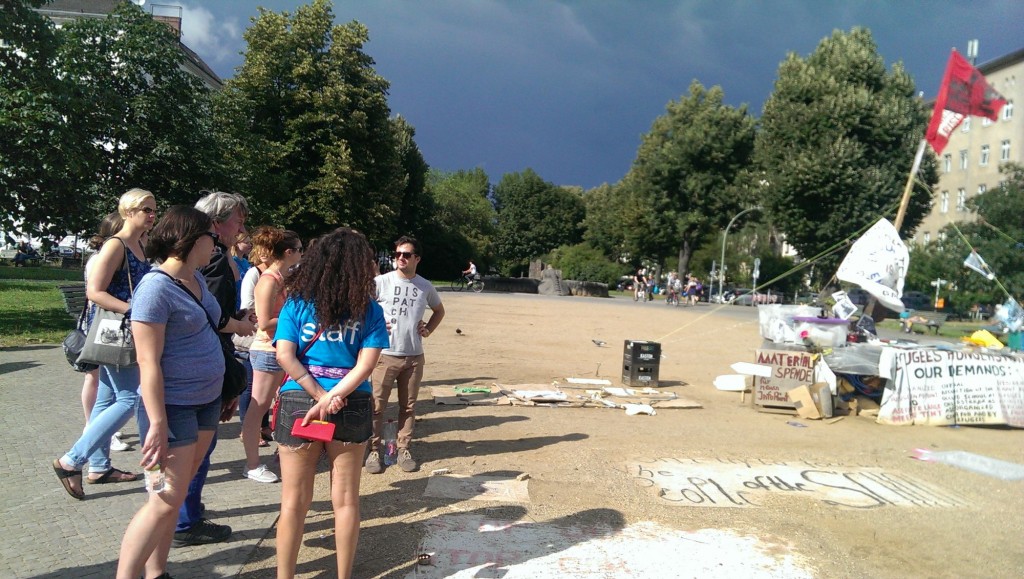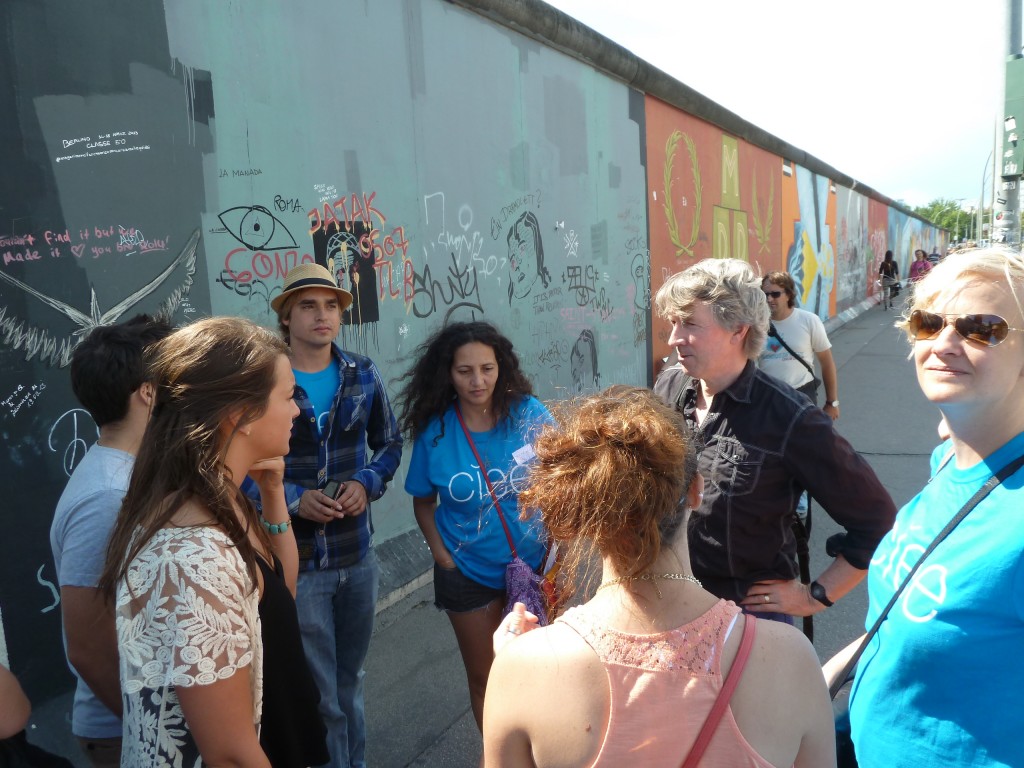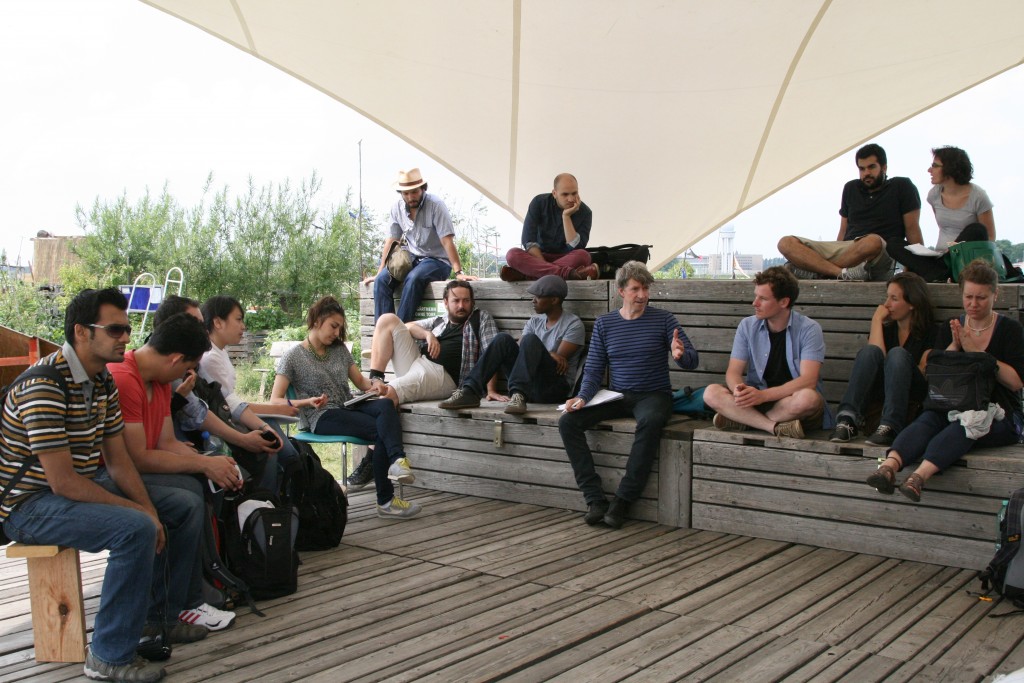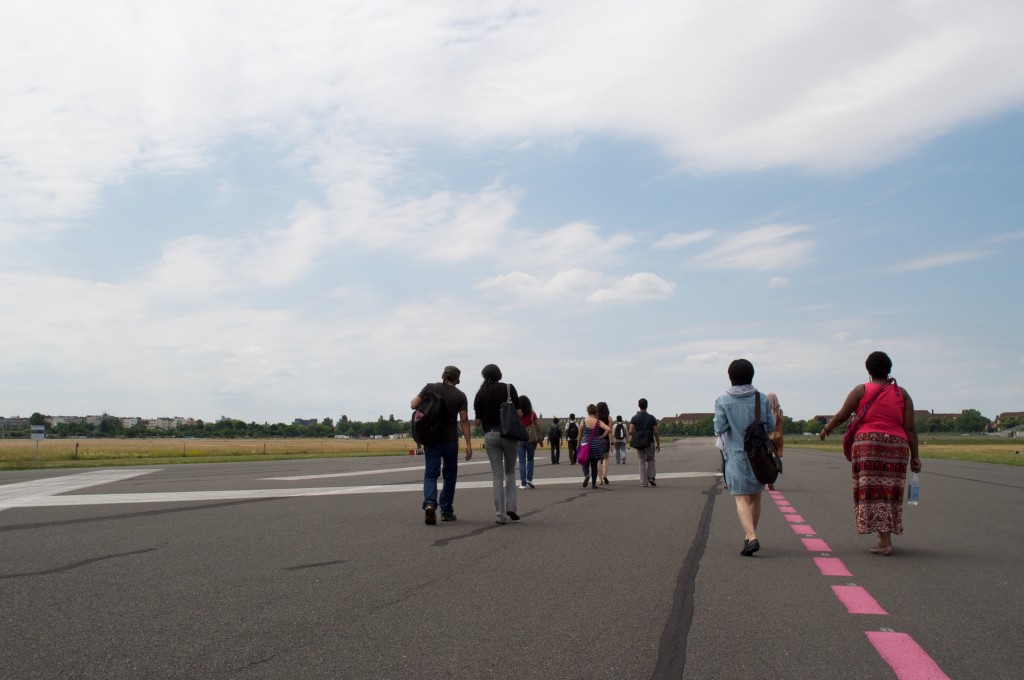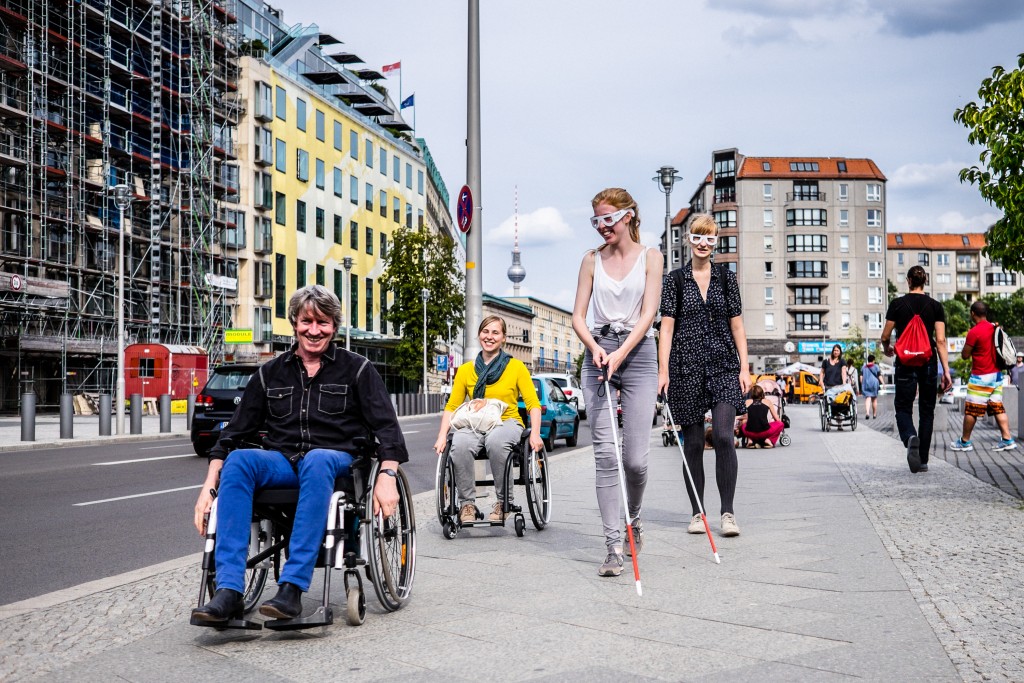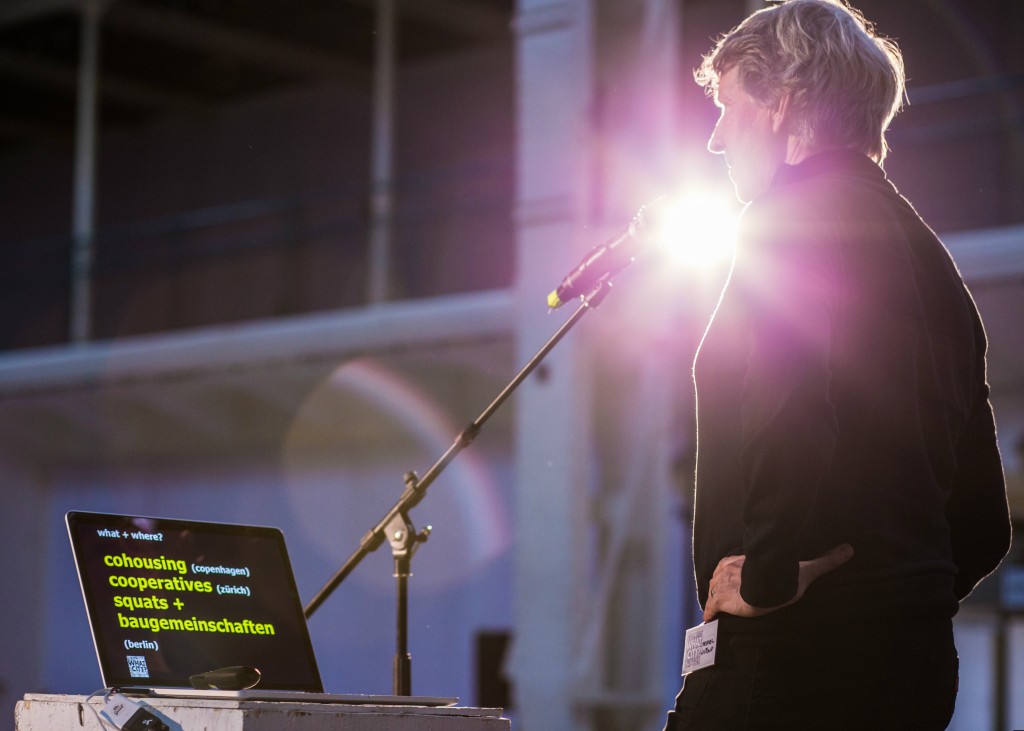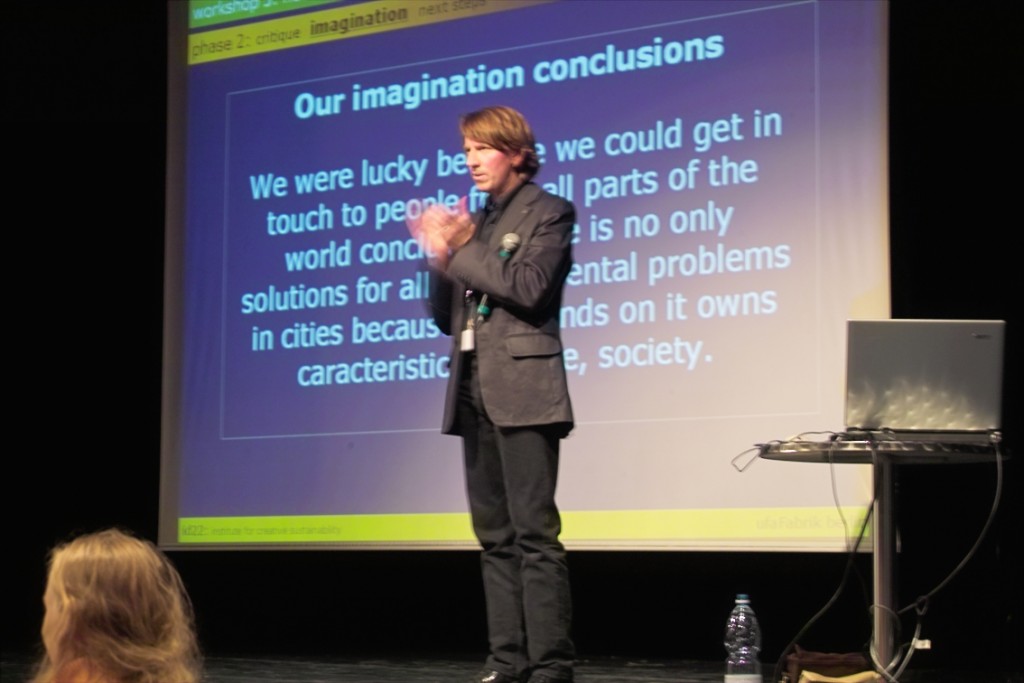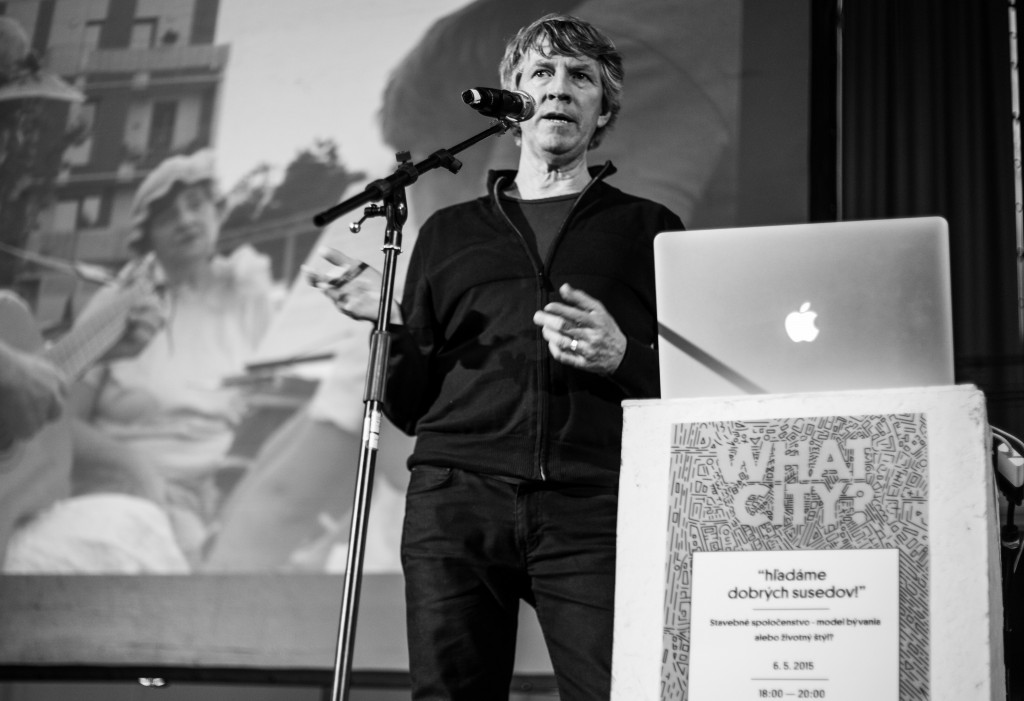Learning offers
Teaching
Education should be participatory, interactive and enjoyable!
Learning is not just about collecting information, but more importantly about finding inspiration and orientation in life!
I have been teaching for decades now, mostly in Berlin but also in other cities such as Seattle.
I emphasize education outside of the classroom, and learning in community-powered locations such as the Spreefeld.
Project visits, tours and excursions, on foot, bike and boat, are always part of the program.
Learning is not just about collecting information, but more importantly about finding inspiration and orientation in life!
I have been teaching for decades now, mostly in Berlin but also in other cities such as Seattle.
I emphasize education outside of the classroom, and learning in community-powered locations such as the Spreefeld.
Project visits, tours and excursions, on foot, bike and boat, are always part of the program.
Berlin Housing Survey . TU Urban Management
Develop an understanding of the current, dynamic Berlin housing situation, as well as the recent history of housing in this region.
Learn about and exchange ideas and information regarding a variety of Berlin housing production and development strategies.
These include cooperative, non-profit, self-organized, municipal, community-oriented, sustainable, mixed-use, participatory and integrative housing for refugees and others.
Compare approaches and experiences among different Berlin actors and initiatives.
Experts will present their experiences and there will be visits to a number of housing projects as well as discussions on current policies, concepts and texts.
Through documenting, studying, comparing and evaluating, students will develop their own conclusions, ideas and definitions with respect to a variety of approaches to developing and managing housing.
We will be reviewing and documenting approaches and projects with respect to topics such as:
government policies and regulations
ownership and management alternatives, financing strategies
affordability and social interests, exclusivity and inclusivity
participation, self-organisation and process in housing production
community and neighborhood orientation
ecological building methods, energy efficiency
integration and inclusion, housing for refugees
A number of exemplary case studies will be reviewed, and through this significant approaches to developing and managing housing in Berlin will be compared.
Learn about and exchange ideas and information regarding a variety of Berlin housing production and development strategies.
These include cooperative, non-profit, self-organized, municipal, community-oriented, sustainable, mixed-use, participatory and integrative housing for refugees and others.
Compare approaches and experiences among different Berlin actors and initiatives.
Experts will present their experiences and there will be visits to a number of housing projects as well as discussions on current policies, concepts and texts.
Through documenting, studying, comparing and evaluating, students will develop their own conclusions, ideas and definitions with respect to a variety of approaches to developing and managing housing.
We will be reviewing and documenting approaches and projects with respect to topics such as:
government policies and regulations
ownership and management alternatives, financing strategies
affordability and social interests, exclusivity and inclusivity
participation, self-organisation and process in housing production
community and neighborhood orientation
ecological building methods, energy efficiency
integration and inclusion, housing for refugees
A number of exemplary case studies will be reviewed, and through this significant approaches to developing and managing housing in Berlin will be compared.
CIEE Design + Sustainability Seminar
| Global Institute Berlin
The course investigates a series of interrelated themes of fundamental importance to urban development:
local and international movements are further developing around ideas of direct participation, self-organization and urban democracy.
urban, architectural and developmental theories are fragmenting and competing for attention, such as the Common Good, New Municipalism, Right to the City and Circular Economy strategies.
political will and political failure in the determination of urban policy demands attention. What combination of top-down and bottom-up is appropriate?
coordinated city-making including co-housing, community gardening, shared economy, etc.
demographic challenges including ageing and diversifying populations.
conflicting patterns of gentrification, segregation, displacement, wealth and poverty.
the reemergence of the pedestrian and bicycle-friendly city.
continued consumption of oil and non-renewable energy and centralization of energy infrastructures - paralleled by movements to localize and decentralize control of energy and resource management.
the alarming increase of CO2 emissions and the consequent alterations to the earth's climatic equilibrium are no longer phenomena that can be ignored by architects and urban planners, also calling for adaptation strategies.
local and international movements are further developing around ideas of direct participation, self-organization and urban democracy.
urban, architectural and developmental theories are fragmenting and competing for attention, such as the Common Good, New Municipalism, Right to the City and Circular Economy strategies.
political will and political failure in the determination of urban policy demands attention. What combination of top-down and bottom-up is appropriate?
coordinated city-making including co-housing, community gardening, shared economy, etc.
demographic challenges including ageing and diversifying populations.
conflicting patterns of gentrification, segregation, displacement, wealth and poverty.
the reemergence of the pedestrian and bicycle-friendly city.
continued consumption of oil and non-renewable energy and centralization of energy infrastructures - paralleled by movements to localize and decentralize control of energy and resource management.
the alarming increase of CO2 emissions and the consequent alterations to the earth's climatic equilibrium are no longer phenomena that can be ignored by architects and urban planners, also calling for adaptation strategies.
Tour Guiding
I organize tours, project visits and discussions especially to get people into contact with Berlin’s unique, local initiatives: open-source-urbanism, Social Ecology, CoHousing, Community Gardens, Community Land Trust, Common Good Initiatives, ecological architecture, alternative cultural projects and more.
Speaking
Facilitating a great discussion is definitely one of my main objectives -
but giving a great presentation is also a challenge I like to take on every now and then.
I have been giving talks at conferences and other events for many years now,
dealing with topics from CoHousing and Inclusion to Creative Sustainability, and from Urban Democracy to Process-Oriented Urban Design and Development.
but giving a great presentation is also a challenge I like to take on every now and then.
I have been giving talks at conferences and other events for many years now,
dealing with topics from CoHousing and Inclusion to Creative Sustainability, and from Urban Democracy to Process-Oriented Urban Design and Development.
Publications
Social-Ecological Cooperative Housing – eBook
SOCIAL-ECOLOGICAL COOPERATIVE HOUSING
Community-based, transformative building and living
From land speculation and exploding rents to climate change and social inequality, we find ourselves in an age of overlapping crises. As such, it is more important than ever that we rethink the ways we live and share, as well as our systems of land and property ownership.
Community-based, transformative building and living
From land speculation and exploding rents to climate change and social inequality, we find ourselves in an age of overlapping crises. As such, it is more important than ever that we rethink the ways we live and share, as well as our systems of land and property ownership.
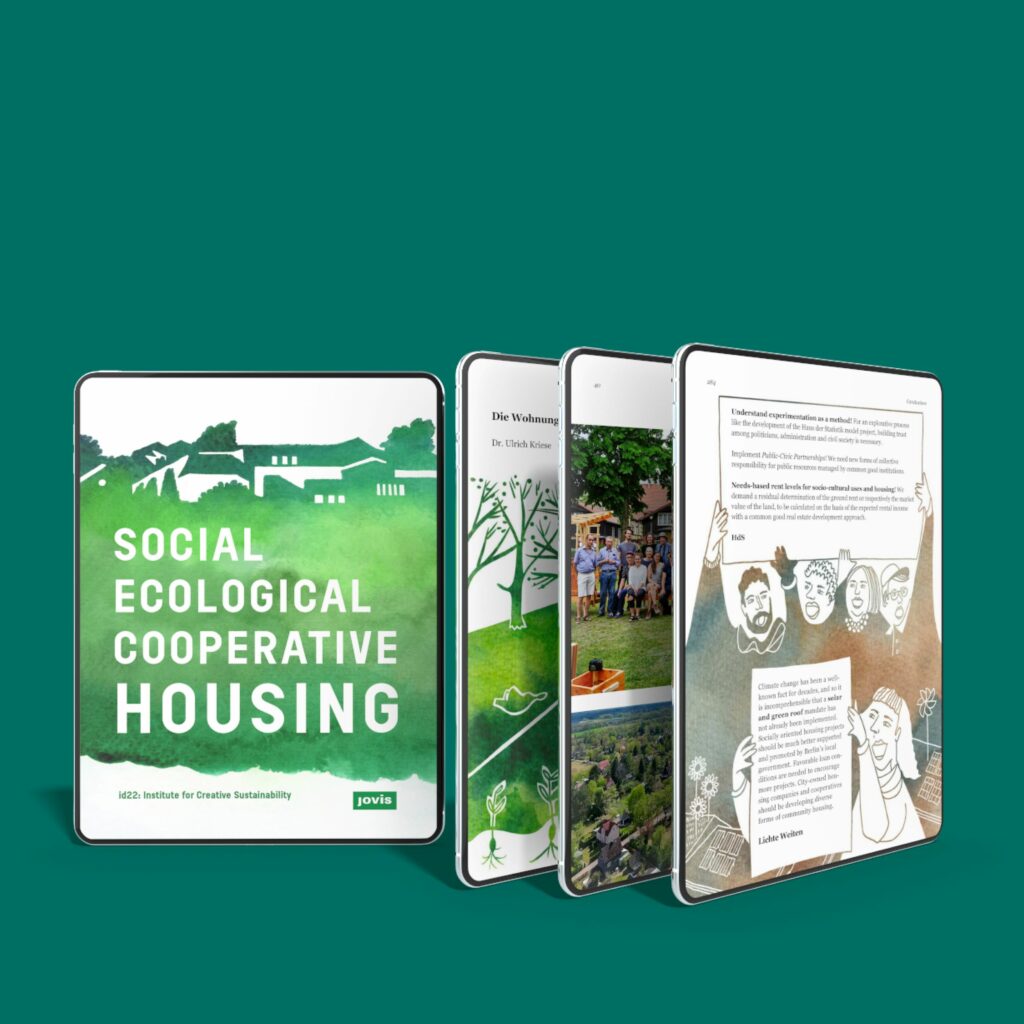
SOCIAL-ECOLOGICAL COOPERATIVE HOUSING
Community-based, transformative building and living
A social-ecological approach to housing calls on us to holistically address the rapidly growing, overlapping crises impacting this world we live in. Developing more sustainable housing thus means not only increasing efficiency, but also making sure sufficiency and reducing consumption take center stage in the ways we share, live and work together. This brings attention to cooperative housing as an affordable and attractive model that works with community-based, non-speculative land ownership. Transformative strategies emphasizing quality of housing and life are prioritized over quantity and growth. Synergies among the social and ecological dimensions are tapped, including the combination of local potentials in community development and technological advances.
Social-Ecological Cooperative Housing presents pioneering cooperative housing projects in Basel, Berlin, Vienna, and Zurich.
The initiatives and alternative ownership models showcased demonstrate the potential of cooperative practices for the necessary social-ecological transformation of building and living.
This interactive e-book enables and encourages the reader to dive more deeply into individual topics and take action themselves.
Community-based, transformative building and living
A social-ecological approach to housing calls on us to holistically address the rapidly growing, overlapping crises impacting this world we live in. Developing more sustainable housing thus means not only increasing efficiency, but also making sure sufficiency and reducing consumption take center stage in the ways we share, live and work together. This brings attention to cooperative housing as an affordable and attractive model that works with community-based, non-speculative land ownership. Transformative strategies emphasizing quality of housing and life are prioritized over quantity and growth. Synergies among the social and ecological dimensions are tapped, including the combination of local potentials in community development and technological advances.
Social-Ecological Cooperative Housing presents pioneering cooperative housing projects in Basel, Berlin, Vienna, and Zurich.
The initiatives and alternative ownership models showcased demonstrate the potential of cooperative practices for the necessary social-ecological transformation of building and living.
This interactive e-book enables and encourages the reader to dive more deeply into individual topics and take action themselves.
- Publisher: id22: Institute for Creative Sustainability
- Language(s): English/German
- Number of pages: 303
- Format (Type): eBook
- Format (Size): 17 × 24 cm
- isbn: 9783868598353
- Ordering address: https://www.jovis.de/en/book/9783868598353
CoHousing Inclusive
Self-organized, community-led housing for all. Experimental dwelling forms—CoHousing Cultures—are entering the mainstream. But to what extent are they accessible and affordable for all, including people with more or less money, with or without refugee experience, with or without disabilities? Collaborative, social housing initiatives are already developing such diversifying, sustainable neighborhoods, and are not only supported by civil society, but also increasingly by apartment providers such as cooperatives. This book contains critical reviews of model projects representing a colorful, European movement, complemented with photos and drawings. Short texts argue how political and financial conditions can be improved to better realize collaborative housing. Finally, a range of voices offer unconventional and promising strategies.
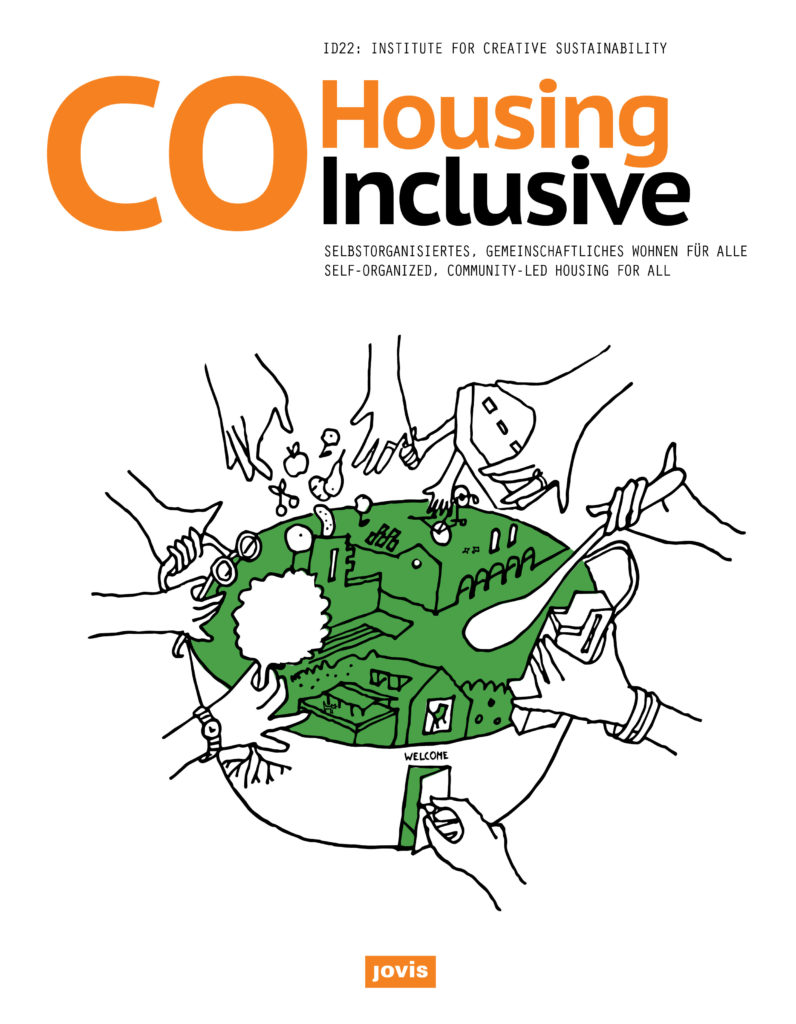
- Publisher: id22 / Dr. Michael LaFond & Larisa Tsvetkova
- Language(s): German / English
- Number of pages: 240
- Format (Type): eBook
- Format (Size): 21 x 27 cm
- isbn: 9783868594621
- Ordering address: https://www.jovis.de/de/book/9783986120153
Stadtlabor Berlin
Die Themen des selbstorganisierten Wohnens und der partizipativen Stadtentwicklung in Berlin sind von unterschiedlichsten Seiten beleuchtet werden. Zu Wort kommen (Wohn)Experten und Engagierte, Stadtentwickler und Politik. Vergangenheit und Gegenwart werden diskutiert, bereits bestehende Netzwerkstrukturen wie z.B. das Wohnportal (inzwischen CoHousing) Berlin und das Bundesportal vorgestellt.
Es wird in die Zukunft geschaut. Trotz der im Jahr 2013 plötzlich abgesagten IBA 2020 vernetzen sich ungehindert Akteure des selbstorganisierten Wohnens und gründen Strukturen – partizipativ und aufbauend auf vielen Jahren Erfahrungen und einer Vielzahl von selbstverwalteten Wohnprojekten. Nicht die einzelnen Wohnhäuser sind in den Vordergrund gestellt, sondern im Sinne einer DIY-IBA die Bündelung von Kräften und die nachhaltige Entwicklung eines Modellquartiers. Mit dieser Jubiläumsausgabe des wohnbund Magazins wünschen wir allen Lesern, den vielen Studenten sowie Experten, Politikern und natürlich auch den Aktivisten, eine Fülle von Ideen und das Glück, selbst beteiligt zu sein am eigenen Wohntraumprojekt!
Es wird in die Zukunft geschaut. Trotz der im Jahr 2013 plötzlich abgesagten IBA 2020 vernetzen sich ungehindert Akteure des selbstorganisierten Wohnens und gründen Strukturen – partizipativ und aufbauend auf vielen Jahren Erfahrungen und einer Vielzahl von selbstverwalteten Wohnprojekten. Nicht die einzelnen Wohnhäuser sind in den Vordergrund gestellt, sondern im Sinne einer DIY-IBA die Bündelung von Kräften und die nachhaltige Entwicklung eines Modellquartiers. Mit dieser Jubiläumsausgabe des wohnbund Magazins wünschen wir allen Lesern, den vielen Studenten sowie Experten, Politikern und natürlich auch den Aktivisten, eine Fülle von Ideen und das Glück, selbst beteiligt zu sein am eigenen Wohntraumprojekt!
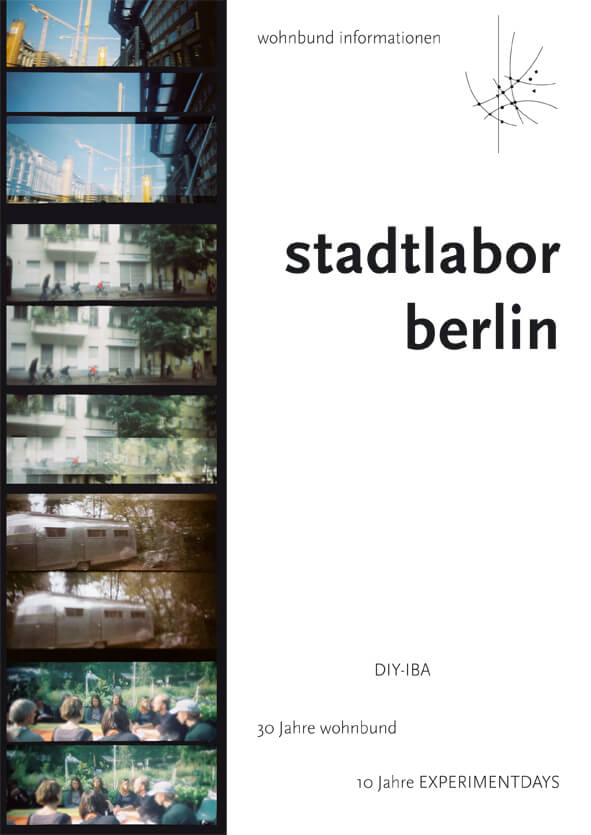
30 Jahre wohnbund. 10 Jahre EXPERIMENTDAYS. DIY-IBA.
Zum 30. Geburtstag des wohnbund e.V. und zu den bereits seit zehn Jahren bestehenden EXPERIMENTDAYS wurde von der wohnbund Redaktion, von id22: Institut für kreative Nachhaltigkeit und von der Netzwerkagentur GenerationenWohnen, unterstützt von der Stiftung trias, eine Jubiläumsausgabe der wohnbund Informationen erstellt.
Zum 30. Geburtstag des wohnbund e.V. und zu den bereits seit zehn Jahren bestehenden EXPERIMENTDAYS wurde von der wohnbund Redaktion, von id22: Institut für kreative Nachhaltigkeit und von der Netzwerkagentur GenerationenWohnen, unterstützt von der Stiftung trias, eine Jubiläumsausgabe der wohnbund Informationen erstellt.
- Publisher: wohnbund eV; id22: Institut für kreative Nachhaltigkeit, Netzwerkagentur GenerationWohnen
- Language(s): deutsch
- Number of pages: 52
- Format (Type): Broschüre
- Format (Size): 21 x 29,7 cm
CoHousing Cultures Handbuch und Ausstellung
CoHousing Cultures are self-organized, community-oriented and sustainable forms of housing. At the international level CoHousing projects are enjoying a growing popularity and are representative of the diversity of regional housing cultures. Interest in self-determination and cooperation as well as the passionate engagement of an increasing number of people in communities and cities is fueling this unique movement with life and energy. Innovative CoHousing is integrating and non-speculative, open to the neighborhood and motivated by a search for ecological, affordable and socially designed homes.
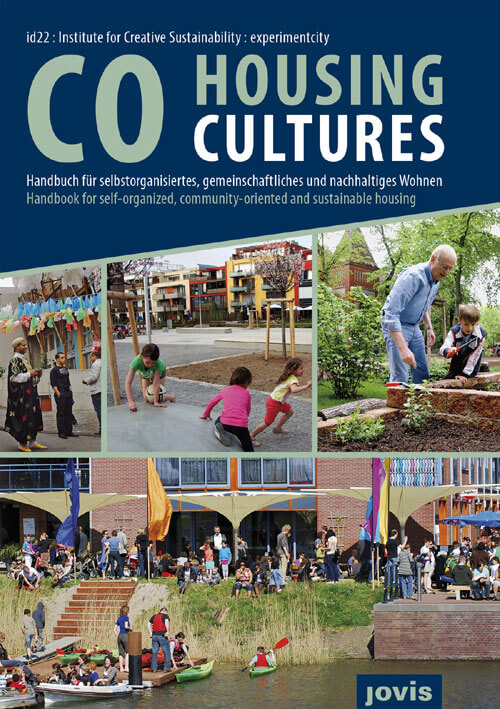
The exhibition as well as the book illustrates a colorful diversity of European examples including a cooperative’s barrier-free renovation of an old school in Berlin, collalborative housing for the 50+ generation in Stockholm and passive architecture planned by and for immigrants in Brussels.
- Publisher: id22/Jovis Verlag
- Language(s): DEUTSCH/ENGLISCH
- Number of pages: 208
- Format (Type): Softcover
- Format (Size): 13 x 18,3 cm
- isbn: 9783868591484
